
In today’s digital age, video games often occupy a significant space in a child’s life. While some parents might view online gaming with scepticism, co-playing with your child offers surprising benefits. This extends beyond entertainment, fostering valuable developmental skills and strengthening the parent-child bond.
Co-playing online games with your children creates a shared experience, fostering communication and teamwork. Working together to achieve in-game goals necessitates clear communication, strategy planning, and collaborative problem-solving. These skills translate seamlessly into real-world scenarios, promoting effective communication and teamwork within families and beyond.
Furthermore, online games often present challenges and puzzles that require critical thinking and creativity. Navigating complex game environments, strategising solutions, and overcoming obstacles encourage children to develop these crucial cognitive skills in a fun and engaging manner.
Beyond cognitive benefits, co-playing fosters a sense of connection and strengthens the parent-child bond. Sharing a positive gaming experience creates opportunities for laughter, shared goals, and a deeper understanding of your child’s interests. This collaborative play allows you to connect with your child on their level, building a stronger and more trusting relationship.
This exploration delves deeper into the benefits of co-playing online games with your child. We’ll examine the positive impact on communication, teamwork, critical thinking, and the parent-child bond. Additionally, the guide offers practical tips for selecting age-appropriate games and creating a safe and enjoyable co-playing experience for you and your child.
This article delves into the surprising perks of co-playing games online with your children, where shared laughter and learning go hand in hand. Keep reading; we’re unlocking a new level of family time!
Understanding Cooperative Play
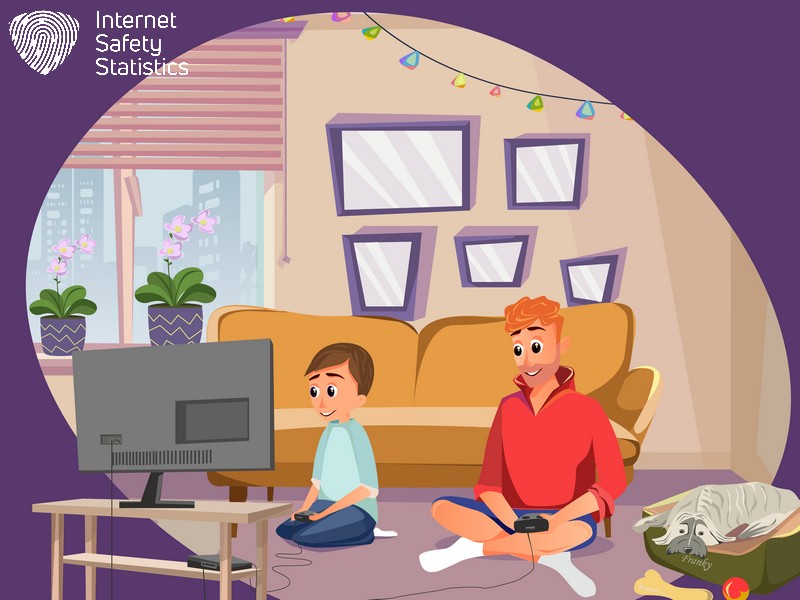
Cooperative play refers to playing and working together towards a common goal. This type of play can take many forms, from simple board games to more complex online multiplayer games.
Definition of Cooperative Play
Cooperative play is all about joining forces and working together. In this kind of play, children or players team up to achieve common goals, solve problems, and enjoy activities as a group. This teamwork approach encourages kids to communicate effectively, share responsibilities, and help each other.
It starkly contrasts with competitive play, where the focus is on winning against others. Instead, cooperative games ask everyone involved to contribute their unique skills towards a shared victory or experience. These games contain valuable lessons; they teach children about empathy by helping them understand different perspectives and showcase the importance of cooperation for achieving success in both game worlds and real life.
Types of Cooperative Play
Cooperative play involves children working together towards a common goal, fostering teamwork and social interaction. There are various types of cooperative play that children can engage in:
- Building and construction games: Children collaborate to build structures or create designs, promoting problem-solving abilities and spatial awareness.
- Pretend play: Role-playing activities encourage imagination and creativity, allowing children to work together in creating scenarios and narratives.
- Team sports and physical activities: Participation in team sports fosters cooperation, communication, and leadership skills among children.
- Board games and puzzles promote critical thinking, strategic planning, and decision-making while encouraging collaboration.
- Multiplayer online games: Interactive gaming with peers helps children develop social skills, problem-solving abilities, and teamwork.
Benefits of Co-Playing Online Games with Your Children
Co-playing online games with your children can reduce aggressive behaviour and improve social skills. It also enhances communication, trust, conflict resolution, and self-regulation.
Reduced Aggressive Behaviour and Tendencies
Playing cooperative online games with your children can help reduce their aggressive behaviour and tendencies. Studies have shown that engaging in collaborative gaming experiences promotes prosocial behaviours, such as empathy and teamwork while improving conflict resolution skills. These positive effects contribute to a more harmonious family dynamic and foster a supportive environment for children’s social and emotional development.
Encouraging cooperative play through online gaming provides an avenue for interactive learning and cultivates a sense of belonging and understanding among family members.
Improved Social Skills and Empathy
Cooperative gaming with your children can improve their social skills and empathy. Studies have shown that collaborative play encourages children to understand the perspectives of others and develop a greater sense of empathy. Furthermore, playing together fosters social interaction, helping kids establish alliances and build peer relationships. These shared gaming experiences can positively affect your child’s emotional development and ability to relate to others.
Encouraging mutual respect, cooperation, and communication in multiplayer gaming settings can enhance teamwork and problem-solving abilities among children. Moreover, engaging in interactive online games with your children promotes a sense of family belonging while nurturing prosocial behaviours such as altruism and conflict resolution.
Enhanced Communication
Enhanced communication is one of the key benefits of co-playing online games with your children. Collaborative gaming encourages real-time communication and coordination between players, which can help improve your child’s verbal and non-verbal communication skills. Research has also shown that children who engage in cooperative play develop better problem-solving abilities and are more adept at effectively expressing their thoughts and ideas.
Furthermore, playing interactive games with your kids offers open conversation and sharing experiences. This fosters a bond through shared interests while honing their ability to articulate their feelings. This form of engagement promotes a positive environment for healthy discussions, creating an avenue for building trust and understanding within the family dynamic.
Trust and Conflict Resolution
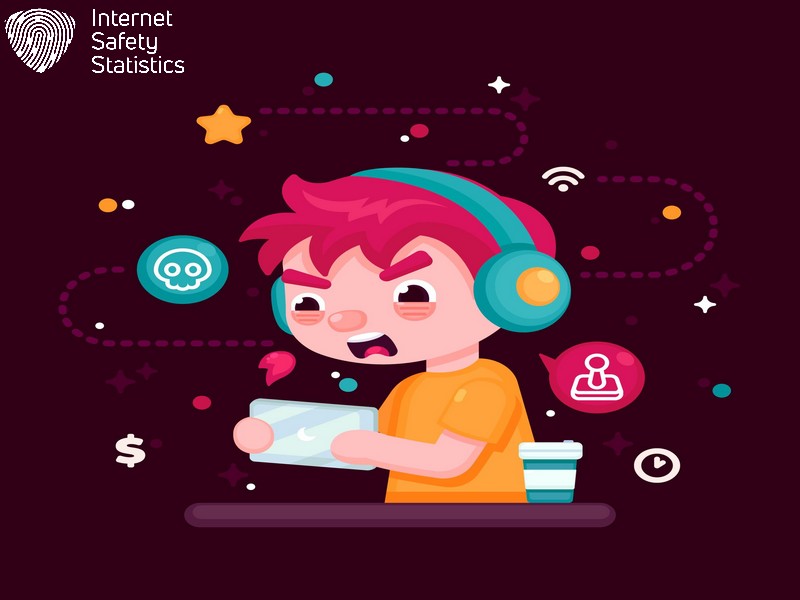
Online cooperative gaming can help children develop trust and conflict-resolution skills. When playing together, kids learn to collaborate, communicate, and strategise, which enhances their problem-solving abilities and fosters trust among teammates. This experience assists in resolving conflicts as they arise in the game, teaching children important life skills that can be applied beyond the virtual world.
Collaborative gaming has been shown to reduce aggressive behaviours in children by promoting empathy and understanding. Through shared experiences and mutual goals within a game, kids learn to work through differences and find resolutions collaboratively rather than resorting to aggression.
Self-Regulation
Co-playing online games with your children can also help them develop self-regulation skills. Children can learn to manage their emotions and behaviour while playing with others by engaging in cooperative play. Research has shown that collaborative gaming promotes problem-solving abilities and teaches children how to control their impulses, contributing to positive social and emotional development.
Understanding the benefits of co-playing online games with your children is essential for promoting their holistic development. Now, let’s examine collaborative gaming studies to see the positive effects on altruism and prosocial behaviours.
Sense of Belonging
Co-playing online games with your children can help them develop a sense of belonging within the gaming community. kids experience inclusion and acceptance when playing together, boosting their confidence and social skills. Studies show that collaborative online gaming can lead to a greater sense of connection and camaraderie among children, promoting positive relationships and a feeling of being part of a team.
Active participation in cooperative play fosters strong bonds, encouraging teamwork and mutual support among players. Collaborative gaming experiences enhance children’s social interaction skills and establish alliances with others, providing them with an enriching sense of belonging in the virtual world.
Collaborative Gaming Studies
Research has shown that cooperative gaming can reduce aggressive behaviour and promote altruism and prosocial behaviours in children. Understanding the positive effects of collaborative gaming can encourage parents to engage in co-playing online games with their children.
Research on Cooperative Gaming and Aggressive Behaviour
Several studies have indicated that cooperative gaming with children can reduce aggressive behaviour and tendencies. Social and collaborative video games have also been found to promote preschoolers’ prosocial behaviour and enhance social skills.
Furthermore, playing online games together fosters social interaction and helps children establish alliances, ultimately leading to improved conflict resolution techniques. These findings highlight the positive impact of cooperative gaming on children’s emotional development and emphasise the importance of parents understanding the benefits that gaming can offer, particularly when it comes to collaborative play.
Moving forward to “Importance of Parent-Child Co-Play,” parents must recognise how shared gaming experiences contribute significantly to their child’s overall development and well-being.
Positive Effects on Altruism and Prosocial Behaviours
Playing collaborative online games with your children has positively impacted their altruism and prosocial behaviours. Research suggests cooperative gaming can increase empathy, kindness, and consideration for others. Kids who play collaboratively are likelier to display helpful and caring attitudes towards their peers, contributing positively to their social development. As parents, fostering these qualities through gaming can encourage a greater sense of compassion and understanding in our kids.
Moreover, collaborative gaming allows children to learn the value of teamwork and cooperation while engaging in enjoyable activities. These experiences can enhance their ability to work harmoniously with others and cultivate essential communication skills — vital elements for promoting a supportive community mindset among young players.
Importance of Parent-Child Co-Play
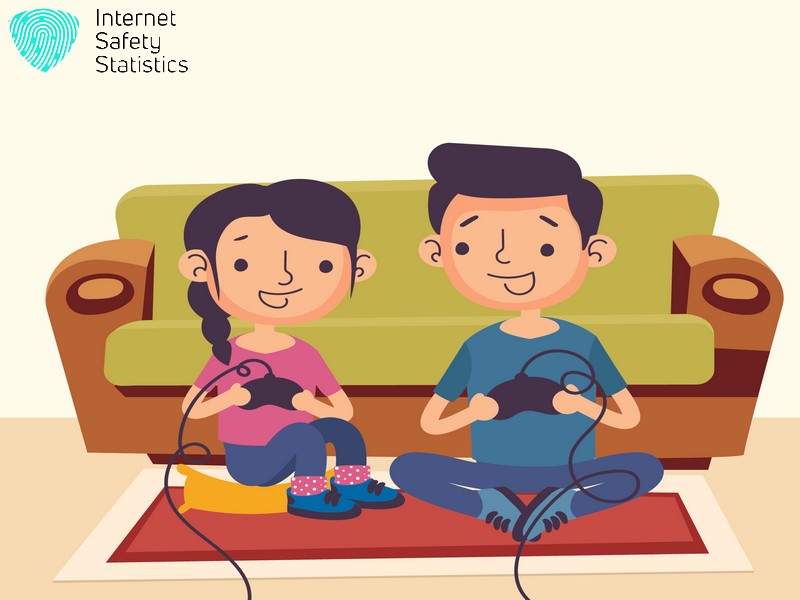
Parent-child co-play is essential for building stronger bonds, promoting learning and development, and encouraging teamwork. It also creates opportunities for quality time and fosters a sense of family unity.
Building Stronger Bonds
Playing online games with your children can help build stronger bonds between you and your kids. Through cooperative gameplay, you can share experiences, work together towards common goals, and spend quality time bonding as a family.
This shared activity creates opportunities for open communication, and fosters trust, creating a strong foundation for the parent-child relationship. Additionally, gaming activities provide a platform for developing problem-solving abilities and encourage teamwork, strengthening the bond between parents and children.
Furthermore, interactive gaming with children has been shown to improve parental involvement in their child’s life and promote learning and development. The collaborative nature of playing video games together supports the growth of healthy relationships within families.
As you explore the benefits of co-playing online games with your children, it’s essential to understand how this shared experience can contribute to positive family dynamics while fostering meaningful and lasting connections.
Promoting Learning and Development
Engaging in cooperative online gaming with your children can promote their learning and development in numerous ways. Kids improve their problem-solving and critical-thinking skills as they navigate challenges and work together to achieve common goals.
Additionally, collaborative play fosters a sense of teamwork, enhancing their communication and social skills. Research has shown that such activities can positively change children’s behaviour, promoting prosocial actions and empathy towards others. Furthermore, the educational benefits of video game bonding extend to improved reading comprehension, cognitive functions, and emotional development.
Parents who engage in online gaming with their children actively promote learning and development while strengthening parent-child relationships. This interactive approach encourages family bonding and reinforces the importance of cooperation and trust within the family unit.
Encouraging Teamwork
Encouraging teamwork in online gaming with your children can help them develop problem-solving and social skills. Collaborative play promotes a sense of belonging and teaches children the importance of working together towards a common goal. Parents can strengthen their relationship with their kids by participating in family gaming sessions while fostering essential skills such as communication, trust, and conflict resolution.
Through cooperative play, kids learn to support each other and build alliances, contributing to their overall social and emotional development.
Practical Ways to Encourage Cooperative Play
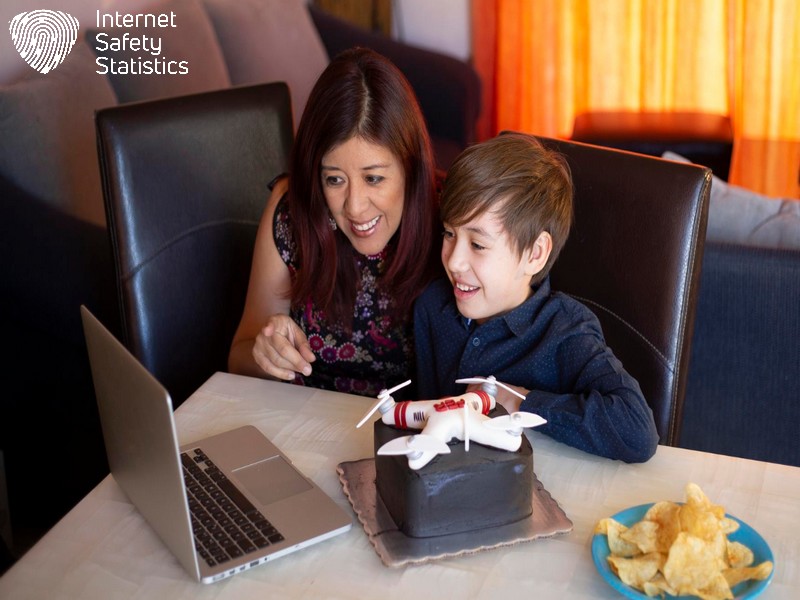
Engage in cooperative online games, set up regular game nights with your children, and provide positive reinforcement to encourage teamwork and collaboration. Continue reading the full blog to find practical ways to encourage cooperative play and strengthen your relationship with your kids.
Cooperative Play Ideas and Activities
To encourage cooperative play and strengthen your bond with your children, consider these practical and engaging activities:
- Engage in collaborative online gameplay that requires teamwork, problem-solving, and communication skills.
- Organise family game nights where everyone can participate in cooperative video games.
- Encourage role-playing scenarios that promote collaboration and mutual decision-making.
- Foster group activities such as creating a collaborative story or building projects in online gaming environments.
- Educational online games emphasise cooperation, problem-solving abilities, and creative thinking.
Different Stages of Play
Understanding the different stages of play is crucial for guiding children’s cooperative gaming experiences. Here are the key stages:
- Solitary Play: Children play alone, are engrossed in their activities, and may not engage with others.
- Parallel Play: Kids play alongside each other with similar toys or games but do not actively interact.
- Associative Play: Children start interacting, sharing toys and discussing their activities during playtime.
- Cooperative Play: Kids work together towards a common goal, taking on roles and collaborating effectively.
Key Pointers for Parents
To support your child’s development through co-playing online games, parents can consider the following key pointers:
- Create a Safe Gaming Environment: Ensure age-appropriate games and set time limits to encourage responsible gaming habits.
- Engage in Active Participation: Join gaming sessions with your children to understand their interests and build stronger bonds.
- Foster Positive Communication: Encourage open dialogue about the games played, emphasising problem-solving and teamwork.
- Model Sportsmanship Behaviour: Demonstrate good sportsmanship and fair play to influence your child’s gaming outlook positively.
- Balance Gaming with Other Activities: Encourage diverse activities beyond gaming to promote physical and social development.
- Stay Informed About Game Content: Be aware of the game content to make informed decisions about its suitability for your child.
- Emphasise Collaboration Over Competition: Highlight the importance of cooperation and teamwork over winning or losing while playing games together.
- Set Clear Rules and Boundaries: Establish guidelines for online behaviour, including respecting others, protecting personal information, and handling conflict respectfully.
Personal Experience and Related Articles
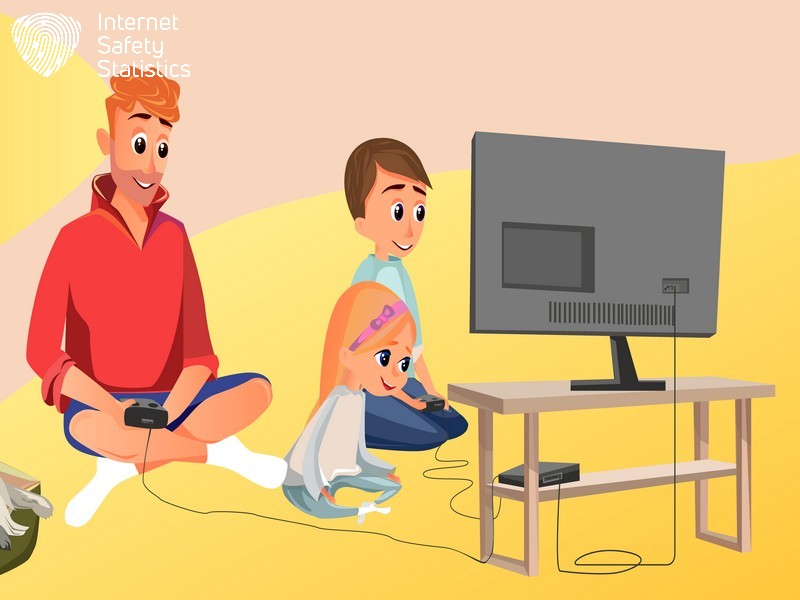
Sharing gaming experiences with children can benefit parents and caregivers. It helps build a stronger bond, encourages teamwork, and promotes learning and development. Studies show that parental involvement in gaming fosters problem-solving abilities in children and enhances parent-child relationships. Parents can positively impact their kids’ social and cognitive skills by engaging in online gaming as a family while creating lasting memories together.
Related articles on the benefits of co-playing online games highlight the positive effects of collaborative play on children’s prosocial behaviours. Research supports that playing video games with kids can reduce aggressive behaviour, improve social skills, and enhance communication.
Co-playing online games with your children can help strengthen your bond and promote positive development. Collaborative gaming fosters problem-solving abilities and encourages teamwork in children. You and your child can enhance communication skills and build stronger relationships by engaging in cooperative play. Embracing the benefits of gaming together can create a more empathetic, socially adept, and emotionally resilient family dynamic.
FAQs
1. What are the benefits of playing online games with my children?
When you play online games with your kids, it strengthens parent-child relationships and helps develop their problem-solving abilities.
2. Can gaming with my kids help them learn new skills?
Absolutely! Gaming together can teach your children valuable lessons, including how to solve complex problems and think critically.
3. How does co-playing online games affect our relationship?
Co-playing can boost your bond with your child as you share experiences, support each other, and enjoy quality time together during these interactive activities.
4. Is gaming all about fun, or can it be educational too?
Gaming isn’t just entertaining; many games are designed to challenge young minds, which means as parents play along, they’re also contributing to their children’s learning journey.
